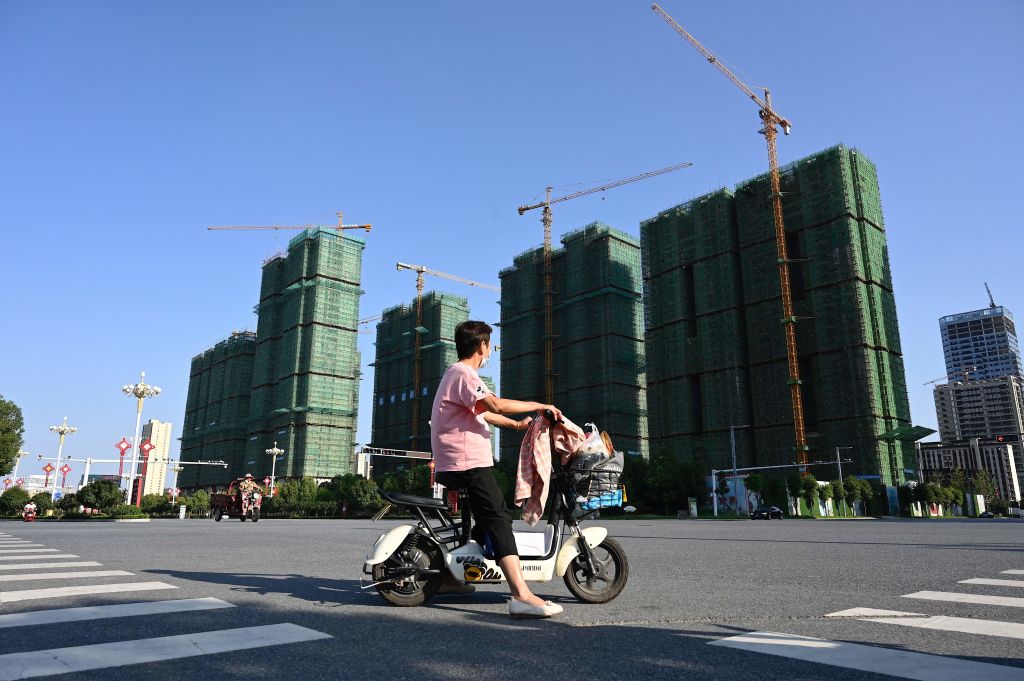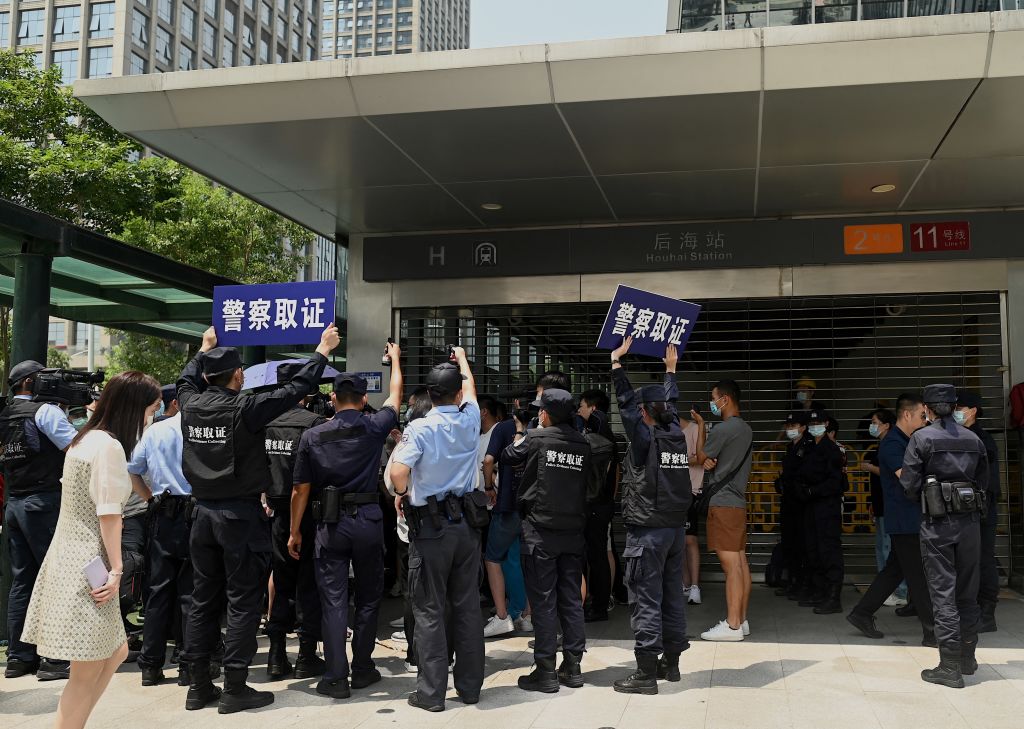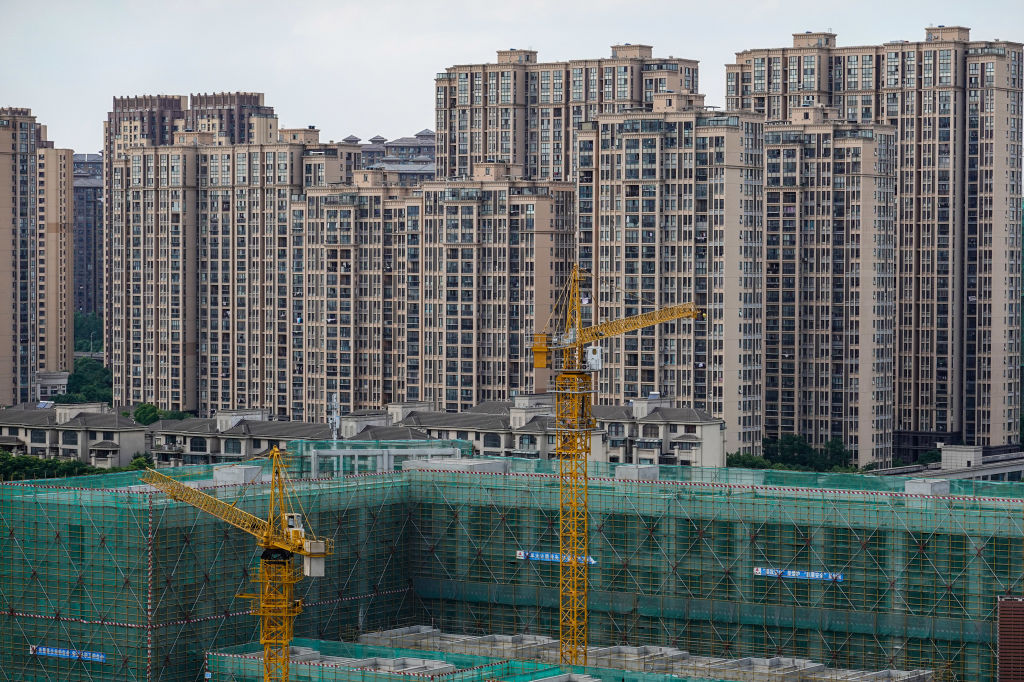
A mortgage boycott in China is “still multiplying” and threatens to “become much more widespread,” according to analysts who say the homeowner protest is already affecting 235 property developments in 24 of China’s 31 provinces.
It is common for homeowners in China to start making mortgage payments on new properties before they are finished, with their payments helping finance the construction. But many projects are facing delays.
“The boycotts appear to reflect growing concern among home buyers about the ability of indebted developers to deliver the homes they have sold, as well as some discontent about declines in new home prices, which have left many buyers sitting on paper losses,” Julian Evans-Pritchard, senior China economist at Capital Economics, said in a note on July 15.
The development could send ripples beyond the property sector.
China’s growing middle classes have piled their savings into property, believing it to be a safe haven for their hard-earned cash. Tianlei Huang, a research fellow at the Peterson Institute for International Economics (PIIE) think tank, cites a 2019 survey by China’s central bank, which showed that nearly 60% of the total assets owned by urban Chinese households were in commercial and residential property.

He points out that China has the world’s highest home ownership rate, standing at about 96% in 2020. “Given such a significant share of Chinese households’ wealth resides in property, any sharp property price corrections may trigger social instability,” he says.
Huang adds that China’s zero-COVID restrictions—which have battered the economy—have impacted both homeowners, who have lost jobs and incomes, and big developers. Property behemoth China Evergrande Group defaulted on its debt in 2021, and at least a dozen other developers have defaulted on offshore bonds. “Many are facing a serious cash flow crisis,” he says.
China’s property crisis
The scale of the problem is huge. Construction halted on around 13 million apartments during the past year alone, according to Capital Economics, and up to $220 billion in mortgage loans are tied to unfinished residential projects, according to a report by Australian bank ANZ. The growing boycotts threaten to worsen the problem, creating a vicious cycle where already struggling developers become even more strapped for cash.
Read More: Why the Fate of Troubled Property Developer Evergrande Group Is Posing a Huge Headache for China
In his note, Evans-Pritchard contended that developers “have drawn renewed public attention to the risks involved in purchasing unfinished homes and are likely to dampen appetite for new home purchases.” He also warned that “banks will become more reluctant to extend mortgages for new home purchases from indebted developers.”
Michael Pettis, a senior fellow at the think tank Carnegie Endowment for International Peace, and a professor of finance at Peking University, says that over the past decade Chinese people have bought property with the conviction that prices would only ever rise. “That conviction has been shattered,” he says, “and we know from the history of previous property bubbles that once that happens, it is very hard to keep prices from dropping a lot more.”
Regulators have already stepped in. The China Banking and Insurance Regulatory Commission has urged banks to extend loans to property developers, so that they can complete unfinished projects, according to Reuters. Bloomberg reports that authorities may allow homeowners to halt payments on stalled projects—but only temporarily.
The overarching concern is the implication of a bust in the property sector for the financial system, which is heavily exposed to real estate. On July 18, Fitch Ratings said that a rise in mortgage defaults could be risky for banks and developers. “Authorities are likely to step in to curb mortgage defaults from spreading more widely and to larger cities,” it predicted, “but a failure of policy intervention to restore home buyer confidence could test the banking system’s resilience and heighten liquidity pressure [for] developers.”

The crisis strikes at the heart of China’s development model. The world’s most populous nation has used construction and property sales to drive economic growth over the last decade, with the property sector accounting for more than a quarter of the economy. The World Bank warned in its China Economic Outlook report last month that China needed to take “decisive action” to “encourage a shift toward consumption” if it wanted to “achieve a more balanced, inclusive, and sustainable growth trajectory.”
The obstacles aren’t insurmountable. Huang says the property crisis will impact banking profits, but he doesn’t expect a system-wide calamity. He points out that down payment requirements in China are high—typically 30% for first time buyers—which means that people are unlikely to walk away from mortgages unless property prices see a seriously sharp decline.
Meanwhile, Pettis believes that “a combination of threats” may ease the problem in the short term. Authorities “can force banks to lend more to viable but unfinished construction projects,” he says. “They can threaten property developers to complete their projects and they can warn home buyers that a default will affect their social credit scores.”
At the same time, he warns that attempts to find new growth engines may be painful for an economy so dependent on booming construction projects.
“Once investment has become so excessive that it can no longer be justified economically, any attempt to reduce it causes growth to slow sharply, which in turn undermines the justification of even more investment,” he says. “In that case it is hard not to get caught up in a vicious circle, in which less investment means less growth, and less growth means less investment can be justified.”
More Must-Reads from TIME
- Cybersecurity Experts Are Sounding the Alarm on DOGE
- Meet the 2025 Women of the Year
- The Harsh Truth About Disability Inclusion
- Why Do More Young Adults Have Cancer?
- Colman Domingo Leads With Radical Love
- How to Get Better at Doing Things Alone
- Michelle Zauner Stares Down the Darkness
Write to Amy Gunia / Hong Kong at amy.gunia@time.com